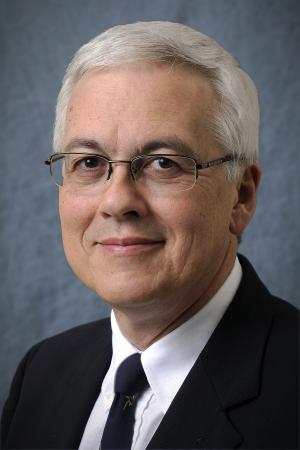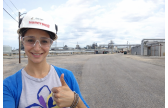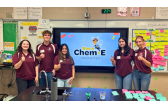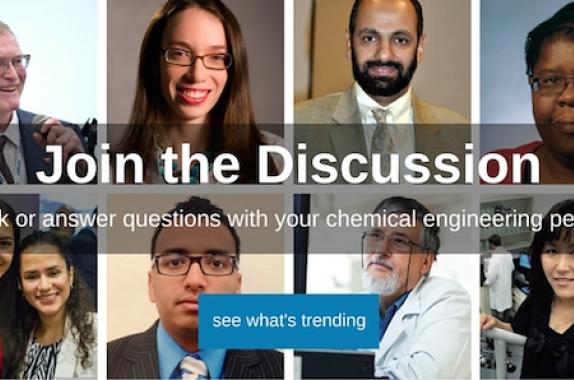
What you learn in a ChE degree program is powerful - but once we start work, every chemical engineer finds out they need to learn even more. It's independent of what degree you received, what kind of job you take, or what area you specialize in. New process engineers face it. New faculty face it. New ChEs in tech service face it, and so on.
An important part of the learning is having your eyes opened by experience. How different valves are different. The importance of good writing and concise, audience-appropriate communication. How to work with staff and craftspeople. Pre-graduation experience can help with that, whether it is a co-op or a post-doctoral position or a summer job.
More formal instruction and guidance is required for other aspects. When you have a work task to accomplish, your self-study of school texts or reference materials takes on a new dimension. You probably have or had a mentor, formally assigned, informally adopted, or simply seen as a role model. Short courses may be called for, in-house or offsite or on the web. Many BSChEs decide to get MBAs, while some will seek law, medical, or other degrees.
What is the factor in common? Nurturing your skills, talent, and expertise to go beyond what you've learned already: "Lifelong learning."
Why is a BS, MS, or PhD not enough?
ChE is far too broad for any undergrad or graduate program to be able teach everything a new professional needs. There are so many different industries and fields. The BSChE covers a number of valuable, explicit skills with a lot more powerful concepts to build on. In MS or PhD research, you achieve much greater depth and insight into your chosen project and its field, yet inevitably you will need to broaden and deepen your knowledge as your career progresses.

For example, schools can only teach the basics of a few separation processes. You have to learn a lot more detail and nuance to work with those processes. If you work with a separation process that wasn't covered - or didn't exist then - you have to learn about it using what concepts and analogous methods you learned before. In addition to ChE technical aspects, other areas where ChEs often require a step change in sophistication include safety, communications, and budgets/accounting.
Hear it from new professionals
In this series, you'll hear from a number of new ChE professionals, each about one to two years past graduation. They'll describe the type of work and responsibilities they've had in their work to date, as well as the skills or expertise they needed or had to learn that go beyond what they learned as students. You'll also hear from their mentor or a senior person offering their perspective on the skills or expertise that new professionals must learn.
Some of the people you'll hear from include Lane Daley at Eastman Chemical, who is working with reactive distillation; Mariam al-Meer of Shell Qatar, who works with the Pearl Gas-to-Liquids process; Jon Haughton of Ingredion, a food ingredients company where he works as a product manager/marketer; and biotechnologists, fab engineers, new faculty, astronauts, attorneys, physicians, and people working in government.

If you are a ChE student or new employee, you will see topics that you'll need, as well as important ideas - and also that you aren't alone in this need to learn.
You'll also enjoy seeing the professional breadth and accomplishments of chemical engineers and chemical engineering. We tend to see what people around us are doing, but we take a remarkable diversity of professional directions.
 What you learn in a ChE degree program is powerful - but once we start work, every chemical engineer finds out they need to learn even more. It's independent of what degree you received, what kind of job you take, or what area you specialize in. New process engineers face it. New faculty face it. New ChEs in tech service face it, and so on.
An important part of the learning is having your eyes opened by experience. How different valves are different. The importance of good writing and concise, audience-appropriate communication. How to work with staff and craftspeople. Pre-graduation experience can help with that, whether it is a co-op or a post-doctoral position or a summer job.
More formal instruction and guidance is required for other aspects. When you have a work task to accomplish, your self-study of school texts or reference materials takes on a new dimension. You probably have or had a mentor, formally assigned, informally adopted, or simply seen as a role model. Short courses may be called for, in-house or offsite or on the web. Many BSChEs decide to get MBAs, while some will seek law, medical, or other degrees.
What is the factor in common? Nurturing your skills, talent, and expertise to go beyond what you've learned already: "Lifelong learning."
What you learn in a ChE degree program is powerful - but once we start work, every chemical engineer finds out they need to learn even more. It's independent of what degree you received, what kind of job you take, or what area you specialize in. New process engineers face it. New faculty face it. New ChEs in tech service face it, and so on.
An important part of the learning is having your eyes opened by experience. How different valves are different. The importance of good writing and concise, audience-appropriate communication. How to work with staff and craftspeople. Pre-graduation experience can help with that, whether it is a co-op or a post-doctoral position or a summer job.
More formal instruction and guidance is required for other aspects. When you have a work task to accomplish, your self-study of school texts or reference materials takes on a new dimension. You probably have or had a mentor, formally assigned, informally adopted, or simply seen as a role model. Short courses may be called for, in-house or offsite or on the web. Many BSChEs decide to get MBAs, while some will seek law, medical, or other degrees.
What is the factor in common? Nurturing your skills, talent, and expertise to go beyond what you've learned already: "Lifelong learning."
 For example, schools can only teach the basics of a few separation processes. You have to learn a lot more detail and nuance to work with those processes. If you work with a separation process that wasn't covered - or didn't exist then - you have to learn about it using what concepts and analogous methods you learned before. In addition to ChE technical aspects, other areas where ChEs often require a step change in sophistication include safety, communications, and budgets/accounting.
For example, schools can only teach the basics of a few separation processes. You have to learn a lot more detail and nuance to work with those processes. If you work with a separation process that wasn't covered - or didn't exist then - you have to learn about it using what concepts and analogous methods you learned before. In addition to ChE technical aspects, other areas where ChEs often require a step change in sophistication include safety, communications, and budgets/accounting.
 If you are a ChE student or new employee, you will see topics that you'll need, as well as important ideas - and also that you aren't alone in this need to learn.
You'll also enjoy seeing the professional breadth and accomplishments of chemical engineers and chemical engineering. We tend to see what people around us are doing, but we take a remarkable diversity of professional directions.
If you are a ChE student or new employee, you will see topics that you'll need, as well as important ideas - and also that you aren't alone in this need to learn.
You'll also enjoy seeing the professional breadth and accomplishments of chemical engineers and chemical engineering. We tend to see what people around us are doing, but we take a remarkable diversity of professional directions.








